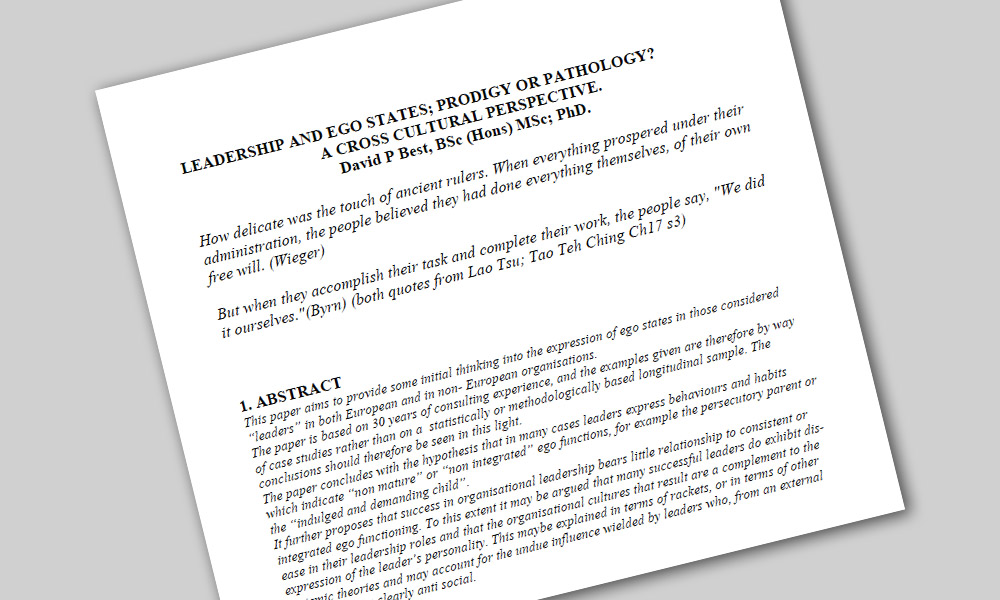Leadership and ego states – prodigy or pathology
David P Best, BSc (Hons) MSc; PhD; FRSA; FMIoM
This paper aims to provide some initial thinking into the expression of ego states in those considered “leaders” in both European and in non- European organisations. The paper is based on 30 years of consulting experience, and the examples given are therefore by way of case studies rather than on a statistically or methodologically based longitudinal sample. The conclusions should therefore be seen in this light.
The paper concludes with the hypothesis that in many cases leaders express behaviours and habits which indicate “non mature” or “non integrated” ego functions, for example the persecutory parent or the “indulged and demanding child”.
It further proposes that success in organisational leadership bears little relationship to consistent or integrated ego functioning. To this extent it may be argued that many successful leaders do exhibit disease in their leadership roles and that the organisational cultures that result are a complement to the expression of the leader’s personality. This maybe explained in terms of rackets, or in terms of other systemic theories and may account for the undue influence wielded by leaders who, from an external perspective are clearly anti social.

